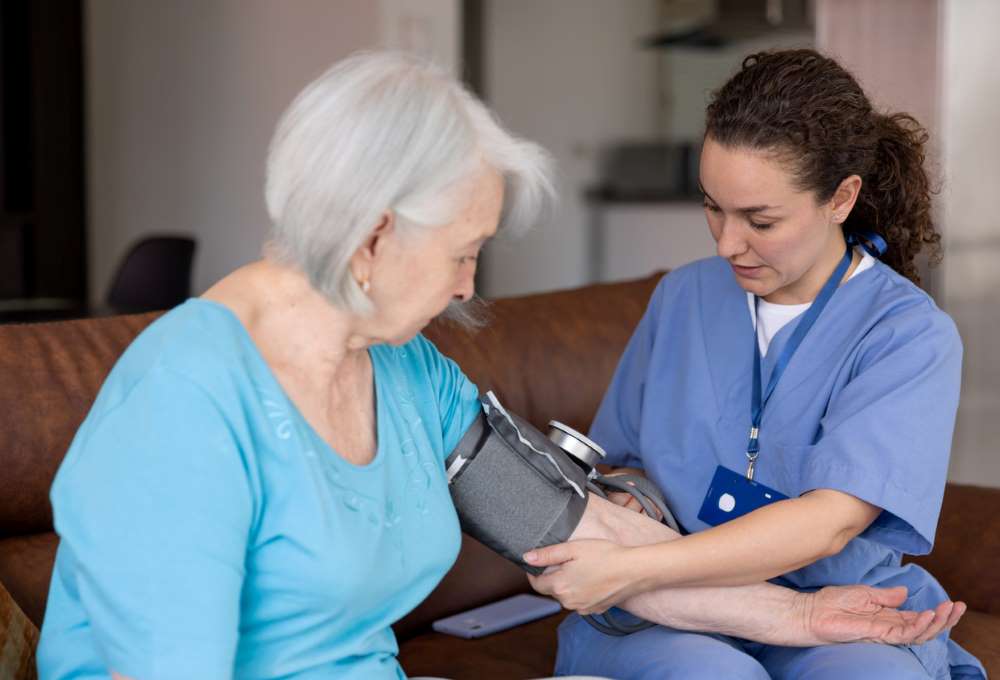
As the Baby Boomer generation gets older, more and more elderly people will need specialized care. This will increase the need for geriatric nursing skills. A recent report from the U.S. Department of Health and Human Services says that by 2040, there will be 21.7% more people over the age of 65 than there are now.
Even though the following tips for caring for elderly patients may seem time-consuming, they can have a big impact on how well the patient does in the long run.
Tip 1: Show that You Care
Sincere empathy helps people get along. Elderly patients should feel like you are taking care of them and understand their problems. As a nurse, you should talk about how you would feel if you were in a similar situation when sharing bad news. Such open and honest communication shows that you understand your clients' problems and care about their situations.
Tip 2: Be Patient
Caregivers of older people must be patient with them. Sometimes, you have to repeat several times what you want to say before elderly patients fully get the message. If you have to say the same thing repeatedly, you should slow down and speak more clearly until the patient understands. The patients may also take longer to respond to what is being said.
Tip 3: Learn How to Listen Actively
When dealing with older people, it's important to pay attention to what they say and remember that both of you may have trouble expressing yourself. As a nurse, you should also use body language, like a nod, to show that you have heard what an elderly patient says without interrupting him or her. Basic nursing skills are essential for all kinds of patients, but a geriatric nurse needs different skills to take care of elderly patients. If you want to polish your nursing skills, you can join online geriatric nurse practitioner programs to make sure you have the right credentials and skills to provide the right care. Not only will this increase your knowledge and confidence, but it will also put the people you are working with at ease. These courses can teach you communication skills and how to listen actively.
If you can't figure out what a patient is trying to say, you should ask them to explain.
Tip 4: Genuinely Show Your Sincerity
During visits, nurses should ask patients the right questions about where they live and who they hang out with. It's important that you know how a patient's culture and beliefs affect treatment. This makes it easier for everyone to agree on a decision. As well as learning about different cultures, it's important to avoid making ageist assumptions when giving advice.
When people can't talk to each other, things can go wrong or the treatment may not work at all. You should break down ageist stereotypes and treat each senior as an individual.
Tip 5: Establish Rapport
To build trust with patients, health organizations need to make sure that all the nurses interact in a positive way. Every nurse should introduce herself properly while talking to a patient and find out which name a patient prefers. Calling patients' preferred names out loud more than once gives them a sense of familiarity and makes it easier for them to take part in wellness planning. Strong relationships also give the patients a positive impression of the organization as a whole.
Tip 6: Be Respectful
"Respect your elders" is a phrase most people have heard, but it is very important during treatment. You should keep in mind that elderly patients may have different ideas about what's going on in the world today. It's important to take into account the different things that seniors can teach us. This understanding can help people from different generations talk to each other
Tip 7: Use the Right Body Language
First, make sure you have the right body language. Sitting directly across from the patient makes it easier to talk to them because it cuts down on distractions and shows that the nurse has their full attention. Keeping eye contact is also important because it gets their attention and helps patients figure out what is going on with their faces.
We’re all bound to get old at some stage, and what’s important is that we’re always surrounded by people that can take care of us to keep us happy and functional. Make sure you treat elderly patients to the best of your capacity once you become a licensed nurse. Using the tips provided here are bound to get you on the right track to becoming the best nurse and understand the value of communication and professionalism.



























